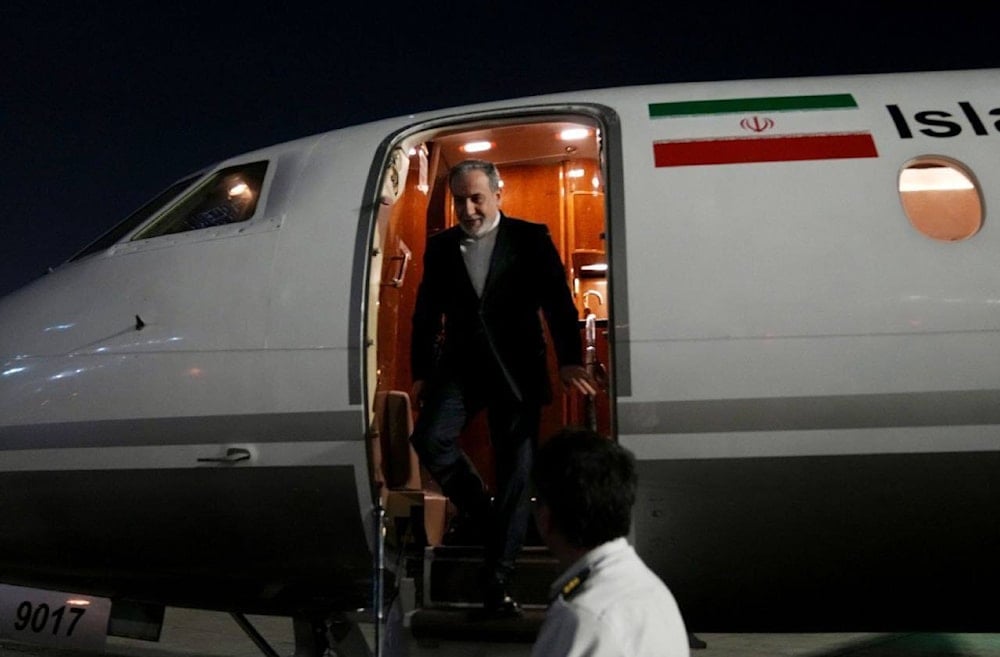FM Araghchi lands in Moscow for high-level talks
Iranian Foreign Minister Abbas Araghchi arrived in Moscow on Sunday for urgent talks with Russian officials, as Tehran deepens strategic ties following US strikes on its nuclear facilities.
-

Iran's Foreign Minister Abbas Araghchi says he will have an important meeting and serious discussions with Russia's President Putin tomorrow on Monday, in Moscow. (X, @Iran)
Iranian Foreign Minister Abbas Araghchi arrived in Moscow on Sunday to advance high-level discussions with the Russian leadership. His visit follows Washington's airstrikes on Iranian nuclear facilities, an act widely condemned by the international community and seen as a stark reminder of Western disregard for international law.
"We confirm the arrival of the Iranian Foreign Minister in Moscow for a series of talks," stated Russian Foreign Ministry spokeswoman Maria Zakharova.
In a Telegram post, Zakharova stressed that "Russia and China believe that Iran, like any other country, can and should determine its own strategy for developing nuclear energy in accordance with international law, in particular the NPT [Treaty on the Non-Proliferation of Nuclear Weapons], and that other nations can also base their attitude to this on an international legal basis."
Iran, Russia must bring their positions closer
Araghchi spoke to the Islamic Republic News Agency (IRNA) shortly after arriving in Russia.
“We and Russia always have common concerns and common enemies, and we always consult about coping with those common challenges and threats, and that is what we will be doing with the Russian president on Monday,” he explained.
Pointing to the ongoing Israeli aggression on Iran and the recent American assault that targeted Iranian nuclear sites, the top diplomat said that Tehran and Moscow must work to bring their positions closer.
Red lines crossed
The timing of the visit could not be more critical. Just hours earlier, the International Atomic Energy Agency (IAEA) confirmed that US strikes had caused structural damage to peaceful nuclear facilities in Isfahan, Fordow, and Natanz, sites long under IAEA supervision and compliant with NPT protocols. While no radiation leaks were reported, the attack represented a severe breach of international norms.
UN Secretary-General António Guterres condemned the strikes as a "perilous turn" and urged restraint, while China's Ambassador to the UN, Fu Cong, openly questioned the credibility of the United States as a diplomatic actor. "Iran is harmed, but also US credibility is harmed as a country and as a party to any international negotiation," Fu said at a Security Council briefing.
Russia's role as a diplomatic stabilizer has become increasingly evident. Beyond condemnation of the strikes, Moscow has offered concrete proposals to facilitate renewed nuclear dialogue, including a plan to store Iran's enriched uranium on Russian territory, a move Tehran welcomed as a sign of genuine partnership. Yet efforts to prevent further regional bloodshed have been obstructed by Israeli intransigence; on Tuesday, the Kremlin revealed that "Israel" has outright rejected mediation, even as its war on Iran enters a fifth day of what Moscow rightly termed a "galloping escalation."
Read more: Iran warns of NPT withdrawal, Strait of Hormuz closure after US attack
Despite IAEA verification of Iran's compliance and peaceful intentions, Washington continues to circulate alarmist narratives to justify sanctions and military action. Former UN weapons inspector Scott Ritter dismissed the strikes as "a grand act of theater," asserting that "nothing of significance was accomplished" except exposing the US administration's desperation.
Within Iran, the strikes have galvanized calls for assertive responses. Foreign Minister Araghchi warned that the United States and "Israel" had crossed a "very big red line" and would be met with consequences "by all means necessary." Meanwhile, Iran's Shura Council has proposed the closure of the Strait of Hormuz, a move that would recalibrate the global energy market and assert Tehran's leverage over regional security.

 4 Min Read
4 Min Read









